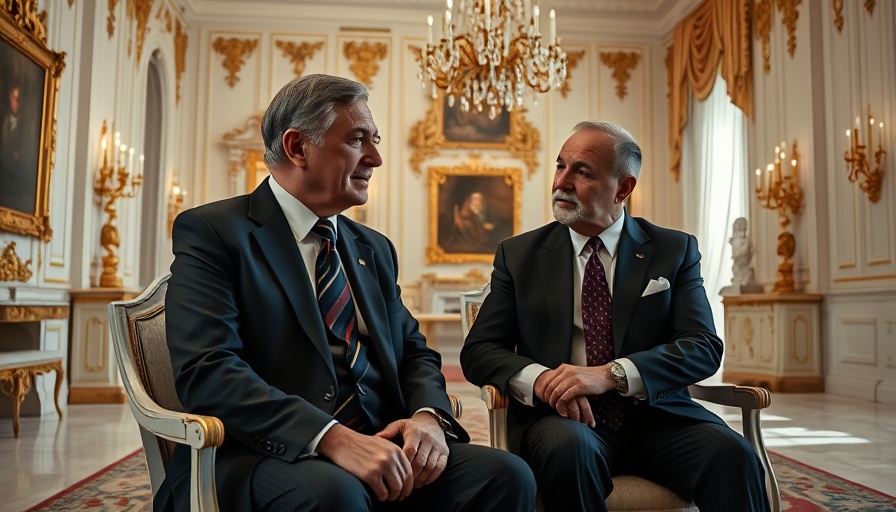
Trump’s 50-Day Ultimatum: A Ticking Clock in U.S.-Russia Relations
In a bold declaration, former President Donald Trump stated that the U.S. will impose a staggering 100% tariff on all nations conducting business with Russia if a peace deal concerning the Ukraine conflict isn't reached within 50 days. Speaking from the Oval Office with NATO Secretary General Mark Rutte by his side, Trump expressed palpable frustration with Russian President Vladimir Putin, mentioning previous calls that ended with little to no tangible progress in the war. "I always hang up, say, 'Well, that was a nice phone call.' And then missiles are launched into Kyiv or some other city — that’s strange," Trump stated, emphasizing the urgency for action over mere rhetoric.
The Implications of Secondary Sanctions
Trump's statement reflects an escalating trend in U.S. sanctions against Russia, especially as lawmakers are advocating for even harsher measures. With some congressional leaders proposing tariffs reaching 500% on countries that engage with Russia in sectors like oil and gas, the political landscape becomes increasingly charged. Senators Lindsey Graham and Richard Blumenthal support Trump's approach, viewing these tariffs as leverage to encourage negotiations from both the Kremlin and Kyiv.
The Global Response: NATO and Beyond
Furthermore, Trump's announcement brings to the forefront NATO's role in the ongoing crisis. The deal reached with NATO for arms sales could empower Ukraine to better defend itself. Rutte underscored the plan’s significance, articulating that although the U.S. would not be financially responsible for these arms shipments, they will enable European nations to support Ukraine's military efforts directly. This strategic partnership reflects NATO’s unified stance in countering Russian aggression, with countries prepared to provide necessary resources.
Peace Talks: An Elusive Goal
While the pressure is mounting on Russia to come to the negotiating table, history suggests that such diplomatic efforts can be fraught with complications. Trump's call for action may resonate with many who are weary of prolonged conflict; however, it also raises questions about the effectiveness of economic sanctions and whether they can genuinely prompt a ceasefire. As we’ve seen in previous geopolitical conflicts, sanctions can lead to further entrenchment rather than resolution.
Public Sentiment and Future Predictions
Public support for a strong stance against Russia is palpable, particularly as American citizens observe the ongoing humanitarian crisis in Ukraine. With widespread media coverage of the conflict, there is an increased call for decisive action from leaders. Future predictions suggest that if a ceasefire is not achieved, we might see not only heightened national security measures but also potential shifts in international alliances as countries align themselves based on their response to the ongoing crisis.
Conclusion: The Road Ahead
As the deadline approaches, the international community watches carefully to see how this ultimatum will influence global diplomacy and trade. Will Trump’s tariffs serve as a wake-up call for the Kremlin, or will they exacerbate tensions further? This issue is poised to dominate headlines in the days to come, shaping both U.S. foreign policy and the geopolitical landscape for years to come. As we engage with this unfolding story, it is crucial to stay informed through reliable news outlets and understand the intricacies involved in these international relations.
 Add Element
Add Element  Add Row
Add Row 



Write A Comment